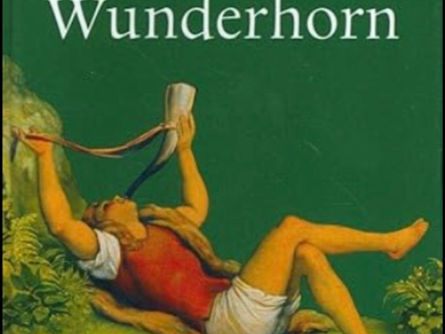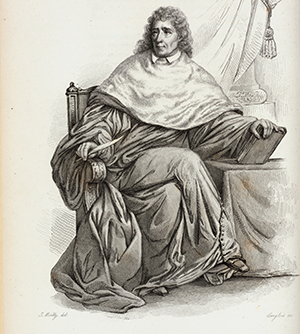top of page
“To look at science through the prism of the artist, but also to look at art through the prism of life.”
- The Birth of Tragedy Out of the Spirit of Music (F.W. Nietzsche)
Omnia dubitanta sunt - Everything is in doubt


Ottomans and Karamanids
This article examines the political, cultural, and linguistic contrasts between the Ottoman Empire and the Karamanid principality, two major Anatolian powers of the fourteenth and fifteenth centuries. By evaluating their respective administrative structures, social compositions, and identity formations, it identifies the distinct trajectories of these two polities. The article also surveys the ethnic and religious groups living under both systems and analyzes the sürgün (forc
Arda Tunca
5 days ago7 min read


A History in the Soul of Stones: Bodrum Castle
On the shores of the Aegean’s deep blue waters lies a peninsula where time flows slowly: Bodrum. For centuries, Bodrum Castle has stood as the symbol of this peninsula, illuminating a history where East meets West, and the Middle Ages converge with the modern era. The foundations of Bodrum Castle were laid in 1406, and it was expanded throughout the 15th century with the addition of towers built by different nations of the Knights of St. John. The process of construction and
Arda Tunca
Nov 169 min read


Law on the Prohibition of Alcoholic Beverages in Turkey (1920)
The Intersection of Morality and Politics Turkey of the 1920s experienced a process of reconstruction in the smallest areas of everyday life. The new state’s aim was not merely to achieve political independence but also to create a new model of human being. This model had to be industrious, moderate, disciplined, and above all, “moral.” The Law on the Prohibition of Alcoholic Beverages ( Men-i Müskirat Kanunu ) enacted on 14 September 1920 was a part of this transformation.
Arda Tunca
Oct 2210 min read


Pytheas of Massalia
The First Scientist-Explorer Pytheas of Massalia (fl. late 4th century BCE) stands as one of antiquity’s most enigmatic figures, an explorer, astronomer, and geographer whose reach extended far beyond the intellectual and geographic boundaries of his time. At a moment when most Greek thinkers conceived of the Earth as a narrow, temperate band of civilization surrounded by impassable extremes, Pytheas undertook a voyage that radically expanded the Greek worldview. Sailing f
Arda Tunca
Oct 157 min read


Politics of Natural Disasters
Introduction Natural disasters, while acts of nature, often unmask the failures of human governance. Earthquakes’ impact is rarely equal....
Arda Tunca
Oct 115 min read


The Ottoman Encounter with Western Music
Folk literature and music represent one side of the Ottoman society’s cultural life. The daily life of the rural population, its poverty,...
Arda Tunca
Oct 99 min read


Des Knaben Wunderhorn: From Folk Tradition to Musical Immortality
In the early years of the 19th century, as Napoleon's armies swept across Europe and the old feudal order crumbled , two young German...
Arda Tunca
Sep 2512 min read


“I Hope for Nothing, I Fear Nothing, I Am Free”: The Life of Nikos Kazantzakis
A Life Between Freedom and Fire Born in Heraklion in 1883, under Ottoman rule, Nikos Kazantzakis emerged from a land under the conditions...
Arda Tunca
Sep 1410 min read


From Mythology to Enlightenment: A Political Tragedy – Promētheús Desmōtēs
Why did Greek mythology and tragedies influence Western philosophy? There are many answers to this question. However, since I have...
Arda Tunca
Aug 315 min read


Can Artificial Intelligence Be A Solution To The Climate Crisis?
Stefan Zweig, in his work Decisive Moments in History , describes the telegraph cable connecting the two sides of the Atlantic as one of...
Arda Tunca
Aug 286 min read


When Innovation Outpaces Ethics
From Creative Destruction to Destructive Innovation Joseph Schumpeter’s concept of creative destruction described capitalism as a...
Arda Tunca
Aug 175 min read


A Warning About the Future of Technology
In 2015, a group of scientists, technology visionaries, and artificial intelligence researchers signed a letter expressing their concerns...
Arda Tunca
Aug 155 min read


The Human from Condorcet to Transhumanism
A Journey of Thought Beginning in a Bookstore It was a day in 1993. I was walking from Taksim Square towards Gümüşsuyu. At the top of the...
Arda Tunca
Aug 79 min read


Economics, Empire, and Madness: Rereading Don Quijote
I wrote the article, The Contradictory Paths of Civilization , when I was 22, just after graduating from university. The books and...
Arda Tunca
Jun 299 min read


The Perils of Anachronism: Contextualizing Early Modern Political Philosophy
Introduction Understanding philosophers within their historical context is essential for accurately interpreting their ideas. Without...
Arda Tunca
Jun 2423 min read


Human Nature and Political Design: Hobbes, Machiavelli, and the Problem of Order
Introduction This article explores how key early modern thinkers, especially Hobbes and Machiavelli, conceptualized human nature and...
Arda Tunca
Jun 209 min read


A Framework for State Durability: Mechanisms for Political Stability Compatible with Human Nature
Introduction Baruch Spinoza, in his Political Treatise , presents a political framework aimed at ensuring the state's durability by...
Arda Tunca
Jun 116 min read


Goethe's Divan and Dialogue Through Music
There is a never-ending issue in the Middle East. It is a millennia-old problem that has plunged people and generations into pain and...
Arda Tunca
Jun 89 min read


Rebetiko: The Music of the Dispossessed, the Margins, and the Aegean Soul
In the shadowed taverns and smoky tekédes of early 20th-century Greece, a sound emerged that would come to define an era of displacement, sorrow, defiance, and deep communal memory. This sound was Rebetiko, a form of Greek urban music born from exile, war, poverty, and cultural hybridity. It was the voice of the marginalized, the music of the mángas and aláni , whose lives unfolded outside the boundaries of respectability, yet within the rich and unruly heart of a reshaped
Arda Tunca
Jun 14 min read


Spinoza’s Foundation: Human Nature, Reason, and the Necessity of the State
Introduction Baruch Spinoza’s Political Treatise (Tractatus Politicus) , though unfinished at his death in 1677, stands as a seminal...
Arda Tunca
May 306 min read
bottom of page